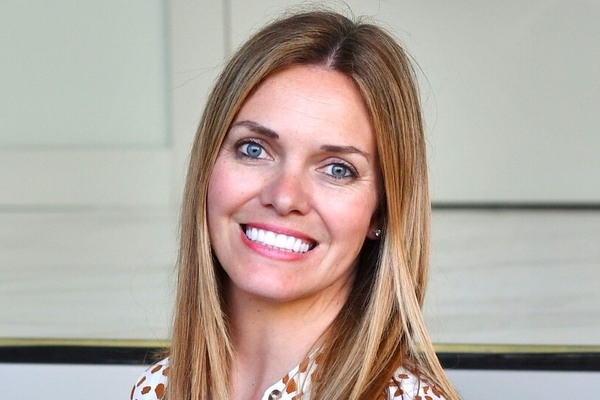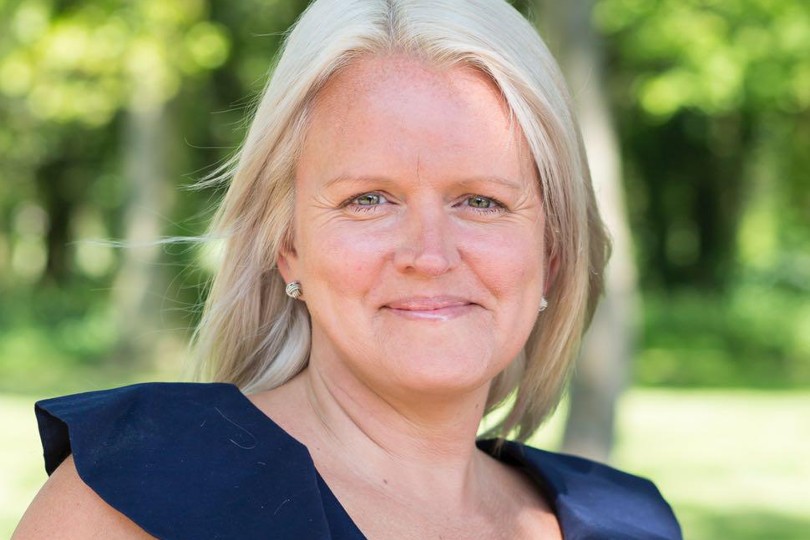Advantage: ‘We don't like the term travel agent – they're so much more’
 James Chapple
James ChappleAdvantage Travel Partnership chief Julia Lo Bue-Said has set out hers and her senior team’s detailed vision for the consortium’s future role in the industry, including how it reimagines agents’ public persona and their worth to consumers, as well as its own place as a political lobbying force.
In a wide-ranging interview with TTG at the 2024 Advantage conference in Cancun, alongside chief commercial officer Kelly Cookes, Lo Bue-Said highlighted four key threads at the forefront of Advantage’s thinking both as a membership organisation but also a travel industry body with a fledgling public profile:
- Supporting members through their full life-cycle
- Changing the public perception of travel agents
- Positioning Advantage as a voice of authority
- Getting outbound travel on the political agenda
Cookes says the majority of Advantage agents had transitioned to an omnichannel approach. "Three-quarters of our members have B2C premises," she tells TTG. "But far fewer of them are operating on the high street in isolation, even compared to just five years ago. The lines are becoming more and more blurred."
Lo Bue-Said and Cookes explain how Advantage has transitioned away from talking about its growth in terms of raw membership numbers, preferring instead to focus on turnover, which in the UK currently stands annually at £7.6 billion, £108 million of which has come from new members in the past year.
"We’re obviously still trying to grow, growth is a big priority and one of our four pillars is footprint expansion and that’s about members growing their own businesses and us bringing new members into the group," Cookes says.
Lo Bue-Said stresses it is in Advantage’s DNA to deliver on its mission to more clearly define – and champion – what it is agents do. "We have to showcase agents’ expertise and have agents recognised as a professional service," she insists. "We have to showcase, demonstrate and articulate very clearly how you describe a travel agent, and why people should book with them – the ‘so what?’."
Elsewhere, Lo Bue-Said’s ambition is for Advantage to become a voice of authority for the travel industry, both in terms of demystifying and promoting the service agents offer, and in bringing the UK outbound travel sector together to speak as one with half the world’s population – including the UK – voting in national elections this year.
'We want to be with our members through the whole life-cycle of them being an agent'
Lo Bue-Said believes a significant part of Advantage's service to its members is a consultative one. "We want to be with members through their whole life-cycle of being agent," she says.
"From having an idea or a concept, putting it down on paper, building a business plan, doing financial forecasting, supporting them commercially and with marketing, and so on.
"Then at the other end of that life-cycle, when they get to the point where they've either had enough or they want to realise the value out of their businesses, we can help broker relationships to potentially get them to the point where they're ready for a sale as well.
"So we're with them from the start of their journey right the way through – the full life-cycle of an agent. We believe we can play an integral part in that."
Cookes takes a similar view, highlighting how one major consumer fallacy is that of a one-dimensional high street. "Having a B2C location is one part of a strategy," she says. "You have to be omnichannel now.
"Where we are seeing people have real success growing their number of locations, they are much more innovative in terms of how they are using those high street locations.
"Call centre branches, concept stores – we're seeing some of our partners come in with funding for the high street. A couple of our members have secured funding from partners to put things like a cruise concierge lounge into their branches.
"It's about knowing the local market and the opportunities, and how you can leverage that without being reliant on footfall. There has to be much more to the strategy than that.
"They have to think about the three-year plan, the five-year plan, how they're going to staff their business and market it, what is their breakdown of sectors. People are willing to do that, and private equity is supporting individuals who want to do that again now.
"We allow a lot of fluidity between operating models. We know people's strategic directions change, so we don't make it difficult for them to move between the models we've got."
'I really don't like the term travel agent – it has a connotation that doesn't land right'
When John and Irene Hays acquired Thomas Cook, they were hailed heroes of the high street. Despite their intervention and the national profile it has given Hays Travel, there remains a significant gap between public perception of what agents are and do, which tends to be fairly old-fashioned, and the reality in 2024.
"I really don't like the term travel agent," says Lo Bue-Said. "It has a connotation that doesn't land right because people don't quite understand what that really means now.
"We've been doing a lot of media work, and when we started, the national press was a bit mystified by it. They would genuinely say, 'a travel agent – on the high street?'. It's not in their realm, it doesn't get talked about.
"Part of what we want to do is the educational piece. When you think about a travel agent, they are experts, they are professionals, they are influencers, they're inspiring people. We want to capture all of that and make sure the consumer understands what that's all about. No one does that."
Lo Bue-Said continues: "So that is part of our strategy – how do we showcase the value of a travel agent, how do reinforce what it means, how do we reinforce why you should book with them, what you get from them and the value. This is in our DNA to deliver."
Cookes adds agents' reputation as either wholly bricks and mortar operations, or wholly online operations, is at odds with reality, but stresses it is on Advantage and its agent members to address this.
"The customer that is going to walk into a high street store is going to know they're there, and that's when you do your local, physical marketing," she says.
"The customer you attract via Facebook is quite often not in your local area, so agents have to think differently depending on who they're trying to target. It's not the same strategy for all."
More from the 2024 Advantage conference
'Our plan is to make Advantage a voice of authority'
In her opening conference address, Lo Bue-Said alluded to what she sees as Advantage's increasingly important role as a travel industry voice of authority, one that advocates for how agents are uniquely equipped to help travellers navigate an increasingly complex world, facing new geopolitical challenges, political instability and regulatory change.
"We see ourselves as a one-stop business hub with multiple lenses," says the Advantage chief executive. "The first is that we're a membership organisation, so we have to make sure we are delivering products and services that our members need.
"Then there's how we make sure we get the consumer messaging right, and that our PR and corporate activity reflects that as well. So we're business champions but also consumer champions as well. We will stand up for things when they're not going right.
"Finally, there's corporate affairs, such as our government lobbying – it's a perfect triangle that encompasses all of that. These aren't all areas we were looking at before so to be able to deliver that strong, robust membership organisation, we believe we have to be performing in all these other areas as well.
"This has all evolved, it's not something we had before. The plan is about Advantage being this voice of authority, championing agents, growing the membership and our brand values – it's all part of the strategic direction of the business."

Advantage emerged from the pandemic with a stronger consumer presence owing, in no small part, to Lo Bue-Said and Cookes' frequent TV appearances where they offered expert guidance and reassurance when the rules around travel were at their most complex and subject to frequent change.
"We know some consumers do now know of Advantage or the brand," says Lo Bue-Said. "They may not understand what it's about so part of the work we are doing is reviewing our brand values and positioning. We've got consumer research out to help us understand what we think that position should be, and we feel it's something different to what is out there right now.
"Creating recognition of that brand benefits our members, and everything we do comes back to our members. The more the profile grows, the more our members benefit. We're not a national brand, but we're a brand that will be coming out and being very clear about what our position is and what values are associated with that brand. It's also incumbent on us to give our members reason to use that brand."
'We've got to get outbound travel on the political agenda – and we are moving the dial'
With an general election likely during the second half of the year, one expected to bring a change of government, Lo Bue-Said admits political messaging is likely to become less nuanced over the coming months – and access to politicians and lawmakers more limited.
"Right now, if you're trying to get hold of the shadow cabinet, you won't," she says. "We haven't a cat in hell's chance right now because there are too many big political issues. We just have to hope that in five or ten years time, travel is on the agenda.
"I recently had a really promising meeting with a high profile civil servant. So these conversations are happening. For us, it's about chipping away. We're not going to change anything overnight. "I'm really clear about our vision – it was very evident during the pandemic there was no one speaking up on the part of travel."
The Advantage-led UK Outbound Travel lobby has been joined by Aito and Abtot, and Lo Bue-Said believes their work engaging professional lobbyists is "starting to move the dial".
"It's about making sure we are at the table so when we are in these meetings, there is someone talking about outbound travel, otherwise no one is. And that's the first stepping stone. I'd like to think, being really optimistic, that five years from now, the value of this sector is understood. It's always been this way with travel not sitting with a senior cabinet member or single department."
Asked whether UK Outbound Travel's agenda can exist alongside a political and legislative structure that divides travel between various departments and ministers, Lo Bue-Said says simply: "It has to. We can't control that. What we can control is the narrative and the engagement work we're doing right now with MPs and civil servants.
"We work across the industry, I have these discussions with the Business Travel Association, with the Tourism Alliance, with Abta, all these people we do have conversations with. But there needs to be a will to get together and really see things in a new lens, maybe three things we all want. Let's just keep talking about them.
"Everyone's got their own agendas, unfortunately. We're not in a crisis, so to speak, and it is frustrating. A lot of people [in the trade] are a bit despondent on the political side of things. But we can make it work. The sector has to mature its thinking around this, and we either collectively take ownership, or we accept it's going to be like this forever.
"We're not prepared to do that, Aito aren't prepared, Abtot aren't prepared, and we have all made a commitment to working together, to uniting ourselves and making sure we drive the right agenda that is relevant to this. And we will keep on trying to encourage other organisations. It is not a competition."
Sign up for weekday travel news and analysis straight to your inbox

James Chapple
Supplier Directory
Find contacts for 260+ travel suppliers. Type name, company or destination.

















